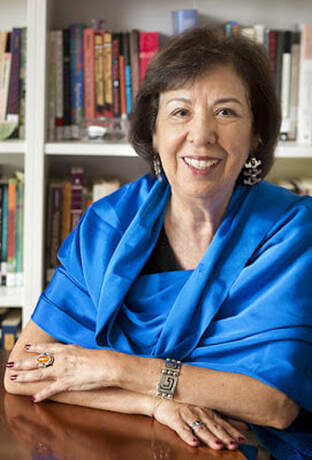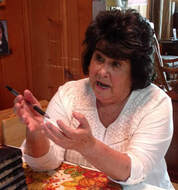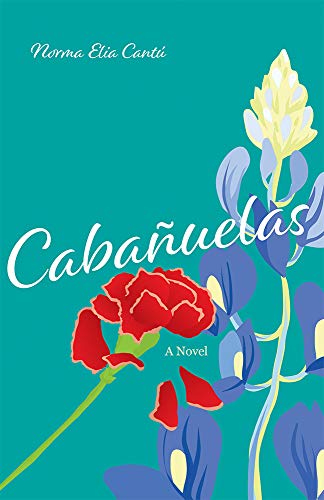A Book Review of Cabañuelas, a novel by Norma Elia Cantú By Rosa Martha Villarreal Dr. Norma E. Cantu describes her fiction as “creative autobiographic ethnography.” Judging from the blurbs on the cover of Cabañuelas and other commentary about her earlier book, Canícula, the post-modern aspects of the novel will be analyzed in full detail: it’s fusion of various genres, including the scholarly and biography; it’s use of photography as a narrative tool; it’s a deeply personal portrayal of family and hearth; the descriptions of Spain’s festivals; and finally, its use of narrative as political discourse. But Cabañuelas is more than that. More than a romance; more than an ethnographic journey; more than one Chicana’s search for the ancient roots of her Mexican-Tejana culture. In this novel, the word “cabañuelas” alludes to a rediscovery of the most ancient knowledge of human passions and aspirations. Technically, the cabañuelas are a system of weather prediction, a lost art, a knowledge discarded by the science of meteorology and dismissed as superstition. But what we have discovered in our post-modern era is that beneath the surface of these so-called folk practices and superstitions are a kernel of the authentic human landscape of passion and experience, a form of knowledge found only in the language of dreams. Thus, the cabañuelas are a metaphor for the existential journey of the protagonist, Nena. Once she makes the decision to search for the ancient origins of her culture’s festivals in Spain, her spiritual calendar has been marked, and a destiny gets set in motion. The journey transcends from ethnography to the phenomenological discovery of the secret self, the self that is not a creature of human constructs but of nature and God. Even before Nena Cantu departs for Madrid on a Fulbright Fellowship, she longingly reflects on her family, her homeland, and its rituals. Thus, nostalgia commences her spiritual cabañuela. Her nostalgia for the origins of these rituals is what inspires her research. Her arrival in Spain is reminiscent of every Hispanic’s first experience: Spain is simultaneously foreign but familial. You are not a Spaniard, but idioms aside, you speak the same language and are shaped by the sensibility of that language. You are a continuation of a mestizaje that began in antiquity when the Romans conquered the Iberian Celts, and continued with the subsequent conquests of Germanic tribes, and finally the Moors. It isn’t long before Nena decides that to find the true origins of the festivals, she must not merely study them in the ancient texts but go and experience them first hand throughout Spain. It is in these journeys that she crosses over from the world we perceive to the world as it really is. That other world, exiled to the margins by our constructs of reason and morality, where there is also truth and beauty, and perhaps the nexus to a spiritual world. The festivals are the relics of the ancient dramas of collective awareness of an invisible universe. It is in that landscape of festivals and timelessness that Nena finds a love that cannot be explained, only experienced. Love before Logos, reason, history, and politics. It is the descent into the body of another who is not only meant for us, but has authored the secrets of our psyche. Someone only you can recognize because you understand in that other language that he is the door to your secret self, to your other self behind the mask of the face that meets the faces that you meet, as T.S. Eliot said. “That’s him?” One of Nena’s friends asks incredulously years after she returns to Madrid. When a Chicana polemicist reminds Nena that he is a member of the conquering race, Nena thinks, but he is human. And that is it: The greater truth. Before we were all else, we were an animal like the rest until we discovered a world beyond. The birth of higher consciousness set us on a separate destiny: the spiritual, and the discovery that the passion of the flesh with one other human would unite us with the spiritual. Passion and spirituality are the same, Sor Juana de la Cruz said. Not the mere sexual release and innate drive to reproduce encoded by evolution; not the patriarchal version of marriage, where women’s aspiration are oppressed in the name of societal good. Something so old we cannot not quantify it but know it is real because we feel it; the knowledge of the flesh and the semiotic language of dreams and intuition. “Before God was love,” said D.H. Lawrence. Nena’s cabañuelas creates her destiny, and Paco is part of that destiny. But so is return. The destiny was set in motion by the nostalgia for the origins of her cultural self. It must be, then, that she’d return although the love she found was profound, magical in the pre-modern definition of magical. That love could have only been discovered in a temporal space. It is a hard thing to realize that a powerful human connection such as hers and Paco’s does not mean it translates to a life together, to “live happily ever after” although that is also a possibility depending on the couple. Paco expects her to sacrifice her homeland for him, but does not offer to do the same. She would have to give up the very thing that started her journey in the first place. Regardless, despite her returning to Texas, the love never ends. It is untouched by time and never replaced by other lovers. My grandfather José used to love a song that was already old when he was born. Un Viejo amor, ni se olvida ni se deja. Never were wiser words spoken. Ultimately, despite the fusion of various genres, its ethnographic contribution, this novel is also about a woman’s existential search where she repeats the ancient, archetypical journey. She sets out to find her cultural identity and finds her ancient human identity. If there is a succinct image for that, it is her self-portrait, the artist, half-hidden behind the camera lens, at once concealed and revealed. Read an excerpt from Cabañuelas: A Novel by Norma Elia Cantú (University of New Mexico Press, 2019) on Somos en escrito under the title, “The women take over the town for a day” (https://somosenescrito.weebly.com/fiction-ficcioacuten). The book is available through the University of New Mexico Press (https://unmpress.com/books/cabanuelas/9780826360618) and on Amazon. .  Norma Elia Cantú, author of Cabañuelas: A Novel, is the Norine R. and T. Frank Murchison Distinguished Professor of the Humanities at Trinity University, San Antonio, Texas. Her recent works include Transcendental Train Yard: A Collaborative Suite of Serigraphs, Canícula: Snapshots of a Girlhood en la Frontera, Updated Edition (UNM Press), and the coedited anthology Entre Guadalupe y Malinche: Tejanas in Literature and Art.  Rosa Martha Villarreal, a Chicana novelist and essayist, is a descendant of the 16th century Spanish and Tlaxcatecan settlers of Nuevo Leon, Mexico. She drew upon her family history in her critically acclaimed novels Doctor Magdalena, Chronicles of Air and Dreams: A Novel of Mexico,and The Stillness of Love and Exile, the latter a recipient of the Josephine Miles PEN Literary Award and a Silver Medalist in the Independent Publishers Book Award (2008). She writes a column, “Tertullian’s Corner,” for Somos en escrito Magazine.
0 Comments
|
Archives
June 2024
Categories
All
|
Donate and Make Literature Happen
is published by the Somos En Escrito Literary Foundation,
a 501 (c) (3) non-profit, tax-exempt corporation. EIN 81-3162209



 RSS Feed
RSS Feed